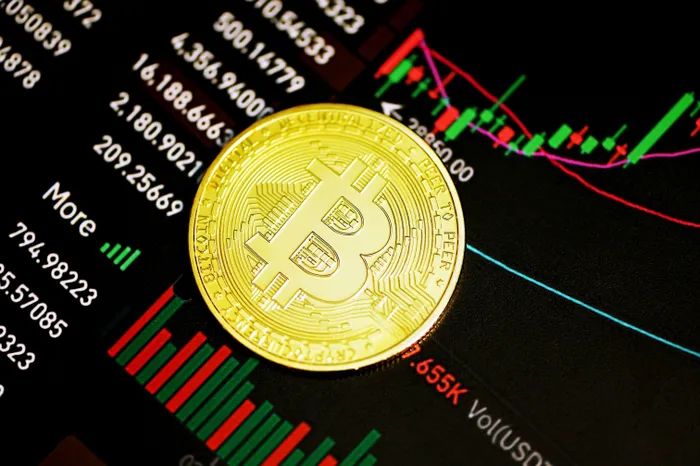Could Bitcoin's maturation kill what made it revolutionary?

Decentralisation: now available in leveraged, arbitraged, and institutionally custodied varieties.
Image: Kanchanara on Unsplash
I still remember the sinking feeling. African Tech Roundup had received a $25 000 grant from the Celo Foundation, tokens that briefly tripled in value (in fiat terms) during the bull run.
Instead of converting to fiat to fund our project as intended, we held. Then the market turned. By the time we needed that funding, we'd operated at a loss, forfeiting the remaining $10 000 rather than continue.
No shade to Celo. I remain grateful for that collaboration, and much of the blockchain education content we published circa 2021-22 with their support remains singularly some of our most-read and listened material. The appetite for the solutions crypto promises is undeniable.
But that experience taught me something crucial about my own susceptibility to making poor reads on what constitutes a solid investment versus a gamble, however, rooted in noble idealism or grounded bullish sentiment. That lesson surfaces every time someone pitches crypto's revolutionary promise.
Which is why I listened with particular scepticism when a FAANG (Facebook, Amazon, Apple, Netflix, and Google) technologist and executive with African roots, now based in Singapore, spent a fair chunk of 79 minutes trying to convince me that Bitcoin is different.
He's currently concepting a crypto venture in stealth and leans somewhat maximalist, positioning Bitcoin not as speculation but as a solution to what he calls the "global money problem."
His thesis resonates with lived African experience: most people work for currencies that constantly lose value through no fault of their own, and Bitcoin offers an escape from this structural theft.
It's a seductive argument, particularly when you consider that I literally lived through the agony of watching the speculative fiat value of precious digital tokens evaporate.
Back in May, I wrote a piece questioning whether stablecoins simply shift financial power rather than decentralise it. Now, watching Bitcoin mature into what proponents call "pristine collateral," I'm recognising the same pattern.
From rebellion to reserve
Consider what's happening at the institutional level. MicroStrategy, the US enterprise software maker that now calls itself a "Bitcoin Treasury company", has pioneered Bitcoin-backed credit instruments. The company has raised billions through convertible notes—debt that can convert to shares—to finance Bitcoin purchases.
In late 2024, MicroStrategy announced plans to raise $42 billion over three years through stock and bond sales. By November 2024, the company had bought a record $5.4 billion in Bitcoin, accumulating over 2% of all tokens that will ever exist. The company's market capitalisation crossed $80 billion, earning it a spot in the Nasdaq 100 Index.
This aggressive strategy has made MicroStrategy a proxy for Bitcoin exposure on Wall Street. Hedge funds buy the company's convertible notes for market-neutral arbitrage bets, exploiting the volatility whilst treating Bitcoin as sophisticated collateral rather than revolutionary currency.
The African disconnect
Yet here's what strikes me about these developments from an African perspective: they're solving for institutional comfort, not for the cross-border payment inefficiencies or currency devaluation that my conversant rightly identifies as acute African problems.
When I wrote about stablecoins promising efficiency for Africa's fintech future a few months ago, the core tension I sensed was whether they simply shift gatekeepers rather than remove them.
Bitcoin maturation presents the same paradox, only more acute. Africa-China trade reached $282 billion in 2023, yet African businesses still struggle with expensive, slow correspondent banking as traditional institutions maintain their grip on cross-border payments.
The institutional Bitcoin infrastructure being built in the US doesn't address these pain points. It creates mechanisms for American institutions to profit from Bitcoin's volatility whilst maintaining control.
The solutions being built assume the problem is making crypto safe for institutions, when, awkwardly, the African problem is making finance accessible despite institutions. It's the difference between democratising access and financialising a new asset class.
The stability trap
But here's the pointed question my conversant's pitch raises: can Bitcoin simultaneously be a democratising force and pristine collateral for institutional finance?
The very characteristics that make Bitcoin attractive as government reserve currency or municipal bond collateral (offering stability, regulatory compliance, institutional custody) are the opposite of the characteristics that made it revolutionary. Bitcoin's promise was removing intermediaries, not becoming infrastructure for new ones.
As some origin legends have it, it was about escaping institutional control, not inviting institutions to build elaborate financial products on top of it.
My Celo experience taught me about my susceptibility to mistaking ideology for investment thesis. But the broader lesson might be more troubling: the solution to people like me isn't making crypto safe for institutions. It's recognising that perhaps the promise was always somewhat illusory.
Bloomberg described MicroStrategy as a "leveraged Bitcoin proxy" whose strategy depends on using debt to amplify Bitcoin exposure. The model works brilliantly in bull markets but carries substantial risk: the company must service debt obligations regardless of Bitcoin's price movements, whilst hedge funds exploit the volatility through convertible bond arbitrage.
When corporations build elaborate financial products atop Bitcoin, when hedge funds arbitrage the volatility, when convertible notes become the mechanism for accumulation, we're not seeing decentralisation triumph. We're watching centralisation discover a new substrate.
The paradox is perfect: for Bitcoin to fulfil its promise of liberation from devaluing currencies, it needs to become stable enough for governments to hold. But that stability requires exactly the institutional participation and regulatory frameworks cypherpunk lore suggests it was designed to circumvent.
Perhaps the real value of my Celo bag-holding wasn't just learning to be more careful with crypto. It was learning to recognise when something sounds revolutionary but functions as rearrangement. Whether it's stablecoins making the dollar more efficient or Bitcoin becoming pristine collateral, it's a revolving door of gatekeepers.
The table still wobbles. We're just arguing about who gets to sell us the matchbook that holds it steady.

Andile Masuku is Co-founder and Executive Producer at African Tech Roundup. Connect and engage with Andile on X (@MasukuAndile) and via LinkedIn.
Image: File.
Andile Masuku is Co-founder and Executive Producer at African Tech Roundup. Connect and engage with Andile on X (@MasukuAndile) and via LinkedIn.
*** The views expressed here do not necessarily represent those of Independent Media or IOL.
BUSINESS REPORT